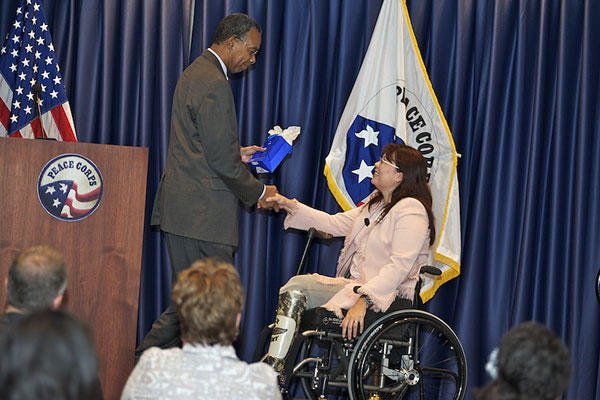Iraq War veteran Rep. Tammy Duckworth, D-Ill., testified Tuesday before the Senate committee that ratification of an international treaty intended to improve the lives of the world's disabled would also help America’s wounded troops.
"The generous benefits provided by the post-9/11 GI Bill … have given almost a million Iraq and Afghanistan veterans the opportunity to further their education," Duckworth told the Senate Foreign Relations Committee.
But many of the disabled among these veterans "will be unable to enhance their education with study abroad opportunities because of a lack of disability access overseas."
"It is sad that those who fought for our freedoms would find their own freedoms restricted now that they are moving on with their lives," she said.
The treaty, which advocates argue will require signatory nations to essentially catch up to where the United States is in terms of granting access and making necessary accommodations to the disabled, has been backed by some 20 veterans' organizations and military associations.
Duckworth, who lost both legs when the helicopter she was piloting over Iraq was shot down, said she has experienced firsthand the difficulties that the disabled face when traveling to places where no effort has been made to accommodate them.
"We often travel to places that have no idea how to accommodate someone with an artificial limb, guide stick, or wheelchair," she said. "Blinded veterans have had their guide sticks taken away after being mistaken for weapons. People with artificial limbs have been told to store them in overhead bins and others have been stranded abroad when one leg of a flight accommodates wheelchair users, but the next one does not."
Duckworth said one blinded veteran who travels the world to climb mountains told her that "climbing the mountains is not the challenge ... it is the getting there that is."
Duckworth also told the Senate committee that even active-duty troops and their families are put at a disadvantage when countries that host American bases fail to provide accommodations for the disabled.
For servicemembers with a disabled child or family member, lack of accessibility abroad can mean limited opportunities for children or employment for spouses, she said. This puts a servicemember in the position of having to choose between going on a career-enhancing tour of duty alone or passing on the assignment
Other witnesses testifying in favor of ratification included Tom Ridge, former secretary of Homeland Security and now chairman of the National Organization on Disability, and Richard Thornburgh, former U.S. Attorney General now with K&L Gates, an international law firm.
Opposition to ratification was voiced by retired Navy helicopter pilot Susan Yoshihara of The Catholic Family & Human Rights Institute and Michael Farris, chairman of the Home School Legal Defense Association and chancellor of Patrick Henry College.
Both argued that signing onto the treaty would put the U.S. in the position of having the United Nations dictate U.S. law and policy. Yoshihara said one UN agency already has misinterpreted treaty language to say it includes a right to "supply sexual information or medical services [to children as young as 10], including pharmaceuticals, without their parents' knowledge." She believes the treaty could be used by some groups to try and amend U.S. law and policy.
Farris said that by signing onto the treaty the U.S. was making American law subservient to international law.
"Since a treaty is an international obligation, international law fully controls the substantive law concerning the nature of our obligations," he said in his testimony.
Farris said the treaty leaves too much to the U.N., including deciding what constitutes a disability, and then stipulating that government must take the best interests of the child into consideration should there be a dispute with parents over the child's care.
Farris argued that leaves government open to taking a child from the family or otherwise dictating how the child should be cared for or educated.
Thornburgh rejected the claims, calling them "not a realistic assessment."
"It's a bit alarmist and perhaps good propaganda," he said, "but this is not a country that's going to submit to any worldwide body. We’ve shown that independence in any number of areas -- why would we choose to roll over on an issue where we have such a leadership role established already? This is unthinkable."





























